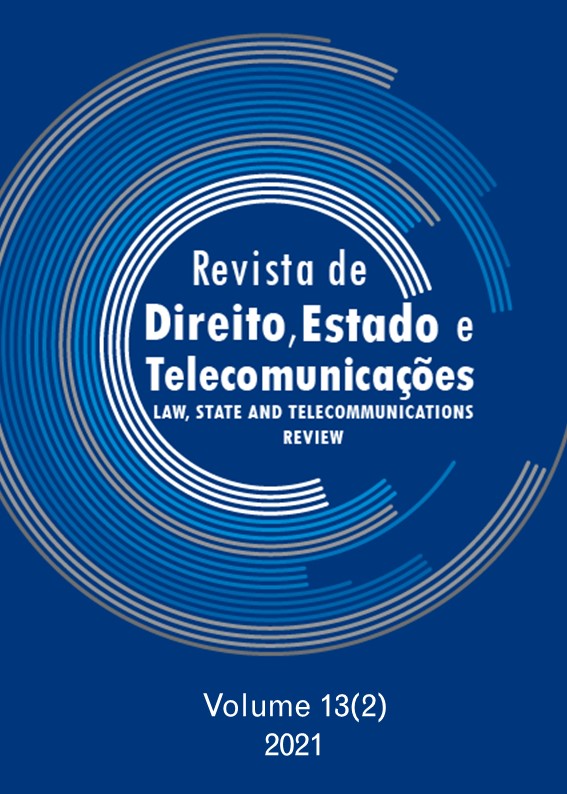The Role of Information and Communication Technologies in Civil Law Relations
Analysis of the Civil Code of the Republic of Kazakhstan
DOI:
https://doi.org/10.26512/lstr.v13i2.34142Schlagwörter:
civil turnover, structure, cybersecurity, legal lexicography, information lawAbstract
[Purpose] The purpose of the study is to establish using the methods of legal linguistics, synthesis and analysis of information the mechanism of formation of the conceptual sphere of cybersecurity and its representation in the texts of regulations.
[Methodology] The methodological basis of the study was determined by the hermeneutic approach to jurisprudence which is mainly focused on methodology, legal technique, the logical and semantic interpretation of certain provisions of various branches of law. In the process of research, methods of analysis and synthesis of information, the comparative analysis also were used.
[Findings] The authors note that the use of the system of civil law relations affects both the civil sphere directly and the procedural aspects of relations and partially the criminal branch of law. The synergistic nature of informatisation of civil law relations and consider it as a part of the system of general cybersecurity of the state as a whole were emphasized. The use of this concept and its legal construction was revealed.
[Practical Implications] The practical significance of the study is determined by the possibility of forming an integrated system of using the mechanism for predicting the development of information and communication technologies to form an equilibrium environment for ensuring the rule of law.
[Originality] The novelty of the study is determined by the fact that information and communication technologies are understood as components of a larger system of ensuring legal security in a country as a whole.
Literaturhinweise
Amato F., Castiglione A., Cozzolino G., Narducci F. A semantic-based methodology for digital forensics analysis. Journal of Parallel and Distributed Computing, 2020, 138, 172”“177. https://doi.org/10.1016/j.jpdc.2019.12.017
Ayalew Tareke T., Datta S. Automated and Cloud Enabling Cyber Security Improvement in Selected Institutions/Organizations. Proceedings of the 2nd International Conference on Computing Methodologies and Communication (pp. 533”“538). Erode, India, 2018. https://doi.org/10.1109/ICCMC.2018.8487245
Bahuguna A., Bisht R.K., Pande J. Roadmap Amid Chaos: Cyber Security Management for Organisations. Proceedings of the 2018 9th International Conference on Computing, Communication and Networking Technologies. Bangalore, India, 2018. https://doi.org/10.1109/ICCCNT.2018.8493977
Chowdhury A. Recent cyber security attacks and their mitigation approaches ”“ An overview. Communications in Computer and Information Science, 2016, 651, 54”“65. https://doi.org/10.1007/978-981-10-2741-3_5
Civil Code of the Republic of Kazakhstan, 1994. Retrieved from: https://online.zakon.kz/document/?doc_id=1006061.
Constitution of the Republic of Kazakhstan, 2001. https://www.akorda.kz/ru/official_documents/constitution
Jones D., Choo K.-K.R. Should there be a new body of law for cyber space? Proceedings ”“ 22nd European Conference on Information Systems, 2014. Retrieved from: https://aisel.aisnet.org/ecis2014/proceedings/track11/4/.
Kazakhstan approves the Cybersecurity Strategy of the financial sector for 2018-2022, 2018. Retrieved from: https://www.zakon.kz/4945077-v-kazahstane-utverzhdena-strategiya.html
Losavio M., Hinton J., Fritz K., Lauf A., Hieb J., Im G., Bergman M. STEM for Public Safety in Cyber: Training for Local Law Enforcement and Cyber Security. Proceedings of the 2019 9th IEEE Integrated STEM Education Conference (pp. 215”“221). Princeton, New Jersey. https://doi.org/10.1109/ISECon.2019.8881990
MacAk K. Is the international law of cyber security in crisis? Materials of the International Conference on Cyber Conflict, 2016, 2016-August, 127”“139. https://doi.org/10.1109/CYCON.2016.7529431
Message from the President of the country to the people of Kazakhstan “Kazakhstan - 2030: prosperity, security and improving the well-being of all Kazakhstanis”, 1997. Retrieved from: https://online.zakon.kz/m/Document/?doc_id=1015368
Namazifard A., Amiri B., Tousi A., Aminilari M., Hozhabri A. A. Literature review of different contention of E-commerce security and the purview of cyber law factors. Proceedings of the 9th International Conference on e-Commerce in Developing Countries: With Focus on e-Business. Isfahan, Iran, 2015. https://doi.org/10.1109/ECDC.2015.7156333
Parmar A., Patel K. Critical study and analysis of cyber law awareness among the netizens. Advances in Intelligent Systems and Computing, 2016, 409, 325”“334. https://doi.org/10.1007/978-981-10-0135-2_32
Pitchan M.A., Omar S.Z. Cyber security policy: Review on netizen awareness and laws. Jurnal Komunikasi: Malaysian Journal of Communication, 2019, 35(1), 103”“119. https://doi.org/10.17576/JKMJC-2019-3501-08
Pitzer D.R., Girdner A.M. Addressing and managing cyber security risks and exposures in process control. Proceedings of the Society of Petroleum Engineers ”“ SPE Intelligent Energy International 2014 (pp. 866”“882). Utrecht, The Netherlands, 2014
Rutkowski A. Public international law of the international telecommunication instruments: Cyber security treaty provisions since 1850. Info, 2011, 13(1), 13”“31. https://doi.org/10.1108/14636691111101856
Saleem M. Brexit impact on cyber security of United Kingdom. Proceedings of the 2019 International Conference on Cyber Security and Protection of Digital Services, Cyber Security. Oxford, United Kingdom, 2019. https://doi.org/10.1109/CyberSecPODS.2019.8885271
Sander B. The Sound of Silence: International Law and the Governance of Peacetime Cyber Operations. Materials of the International Conference on Cyber Conflict, 2019, 2019-May, 1-21. https://doi.org/10.23919/CYCON.2019.8756882
SeviÅŸ K.N., Seker E. Cyber warfare: Terms, issues, laws and controversies. Proceedings of the 2016 International Conference on Cyber Security and Protection of Digital Services, Cyber Security. London, United Kingdom, 2016. https://doi.org/10.1109/CyberSecPODS.2016.7502348
Shushtari A., Amiri A.P. The position of cyber security in Iranian E-commerce law (Case study: Consequences of cyber-attack on digital signature). Journal of Critical Reviews, 2020, 7(7), 120”“124. https://doi.org/10.31838/jcr.07.07.19
van Niekerk B., Ramluckan T. A legal perspective of the cyber security dilemma. Materials of the European Conference on Information Warfare and Security, 2019, 2019-July, 544”“550.
Von Heinegg W.H. Chapter 1: The tallinn manual and international cyber security law. Yearbook of International Humanitarian Law, 2013, 15(3), 3”“18. https://doi.org/10.1007/978-90-6704-924-5-1
Wang C. Analysis of six legal systems on cyber security law. Nanjing Youdian Daxue Xuebao (Ziran Kexue Ban)/Journal of Nanjing University of Posts and Telecommunications (Natural Science), 2017, 37(1), 1”“13. https://doi.org/10.14132/j.cnki.1673-5439.2017.01.001
Wilk A. Cyber Security Education and Law. Proceedings of the 2016 IEEE International Conference on Software Science, Technology and Engineering (pp. 94”“103). Beer-Sheva, Israel, 2016. https://doi.org/10.1109/SWSTE.2016.21
Downloads
Veröffentlicht
Ausgabe
Rubrik
Lizenz
Copyright (c) 2021 Law, State and Telecommunications Review

Dieses Werk steht unter der Lizenz Creative Commons Namensnennung 4.0 International.
By submitting this paper to the Law, State and Telecommunications Review,
I hereby declare that I agree to the terms of the Creative Commons Attribution 4.0 International (CC BY 4.0).


